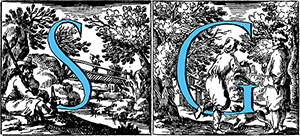
FALDA Giovanni Battista
(Valduggia/Novara 1643 – Rome 1678)
Italian engraver, son of Francis Falda and Catherine Mazzola. Soon the parents recognized his talent for drawing and entrusted him to Francesco Ferrari, painter of religious subjects.
At the age of 14 Giovanni Battista was sent to Rome under the care of an uncle who introduced him to Gian Lorenzo Bernini. Even more than the great sculptor and architect, it was the encounter with Editor Gian Giacomo de Rossi to mark a turning point in young Falda’s artistic career, steering his talent towards the art of engraving. De Rossi completed the cultural formation of the young Giovanni Battista by bringing him into contact with many emerging artistic personalities, such as Francesco Borromini and Pietro da Cortona, from whom Falda learnt the rules of perspective and architecture.
Throughout the entire lenght of his career he made engravings representing the views of Rome and its surroundings, the squares, illustrious palaces, scenic fountains and spectacular gardens. In 1665 Falda published, with De Rossi as editor, its masterpiece: the tables of the first book of Nuovo Teatro delle fabbriche, et edificii, in prospettiva di Roma moderna sotto il felice pontificato di n.s. Alessandro VII, to which the second and the third books followed in 1665 and 1669. Witness of the efficacy of the association between Falda and De Rossi is the great spreading of the very famous Plant of Rome printed in twelve sheets in 1676.
He perfected this kind of plants that prevailed over all other until the publication of those of G. B. Nolli (1748). The divulgative and commercial aspect of engraved views was ably exploited by De Rossi publisher who established with Falda a strong collaboration for the production of 17th century prints in Rome. The success obtained by this collaboration is comparable only to the fame reserved to the work of Giovanni Battista Piranesi some years later.
Falda died in Rome at the age of thirty-five years only in August 1678. He was buried in S. Maria della Scala in Trastevere.

